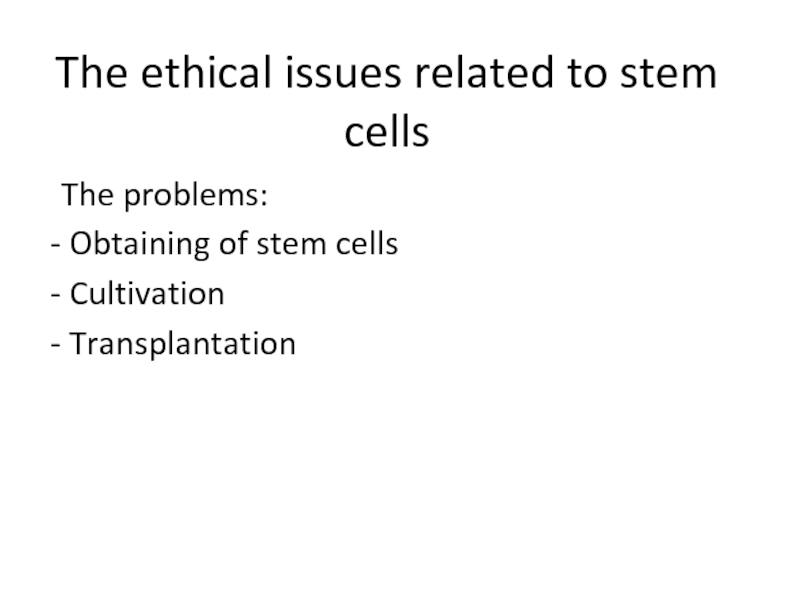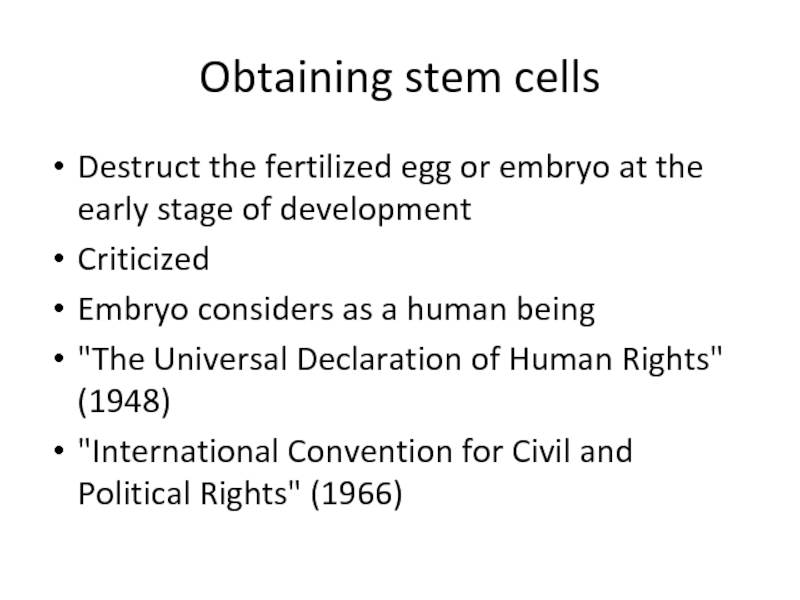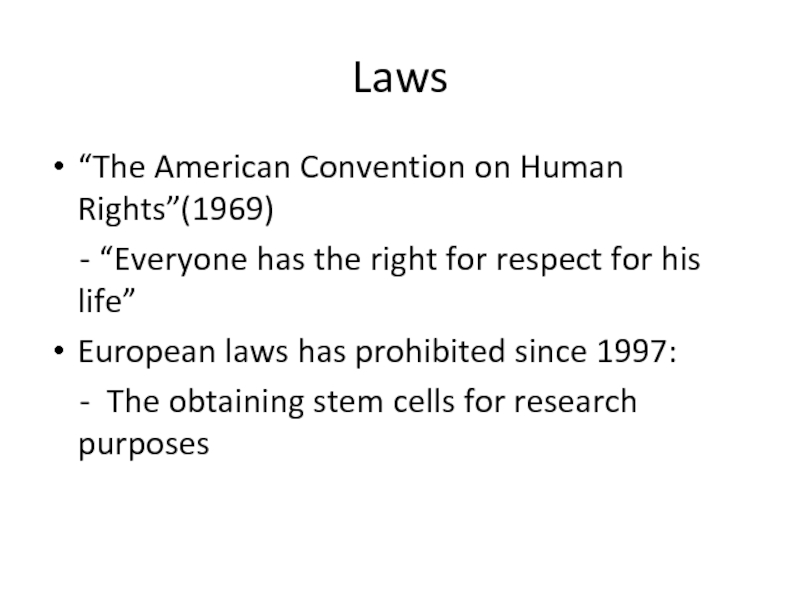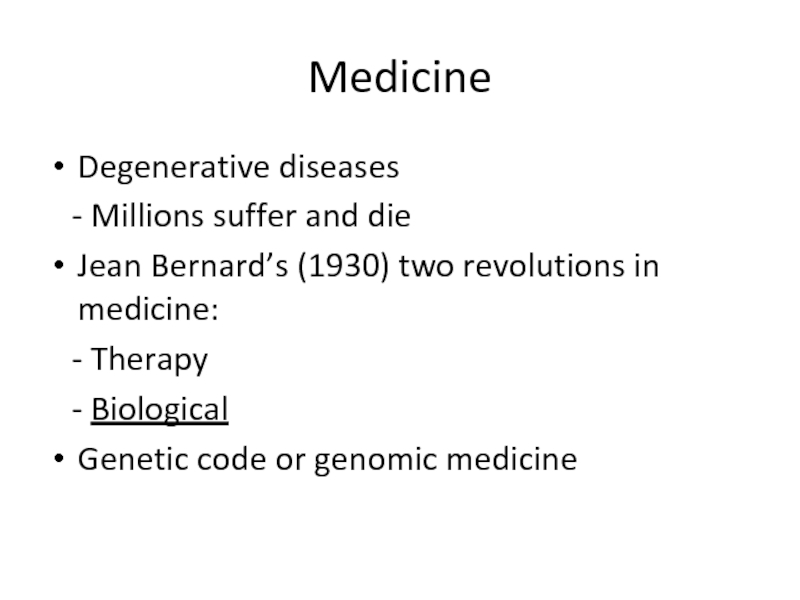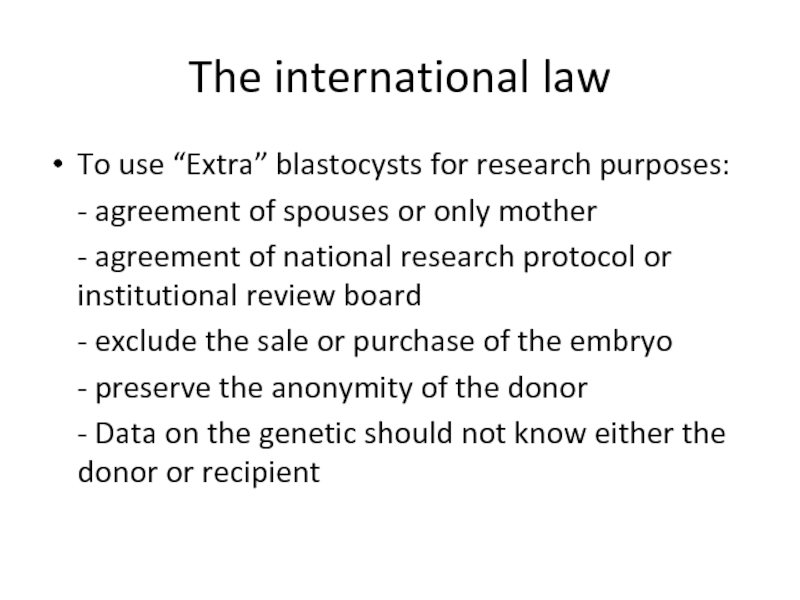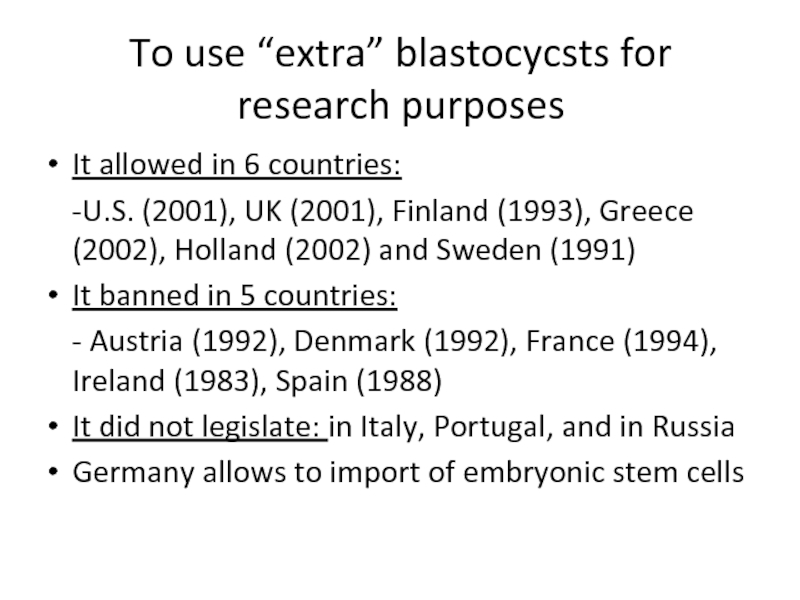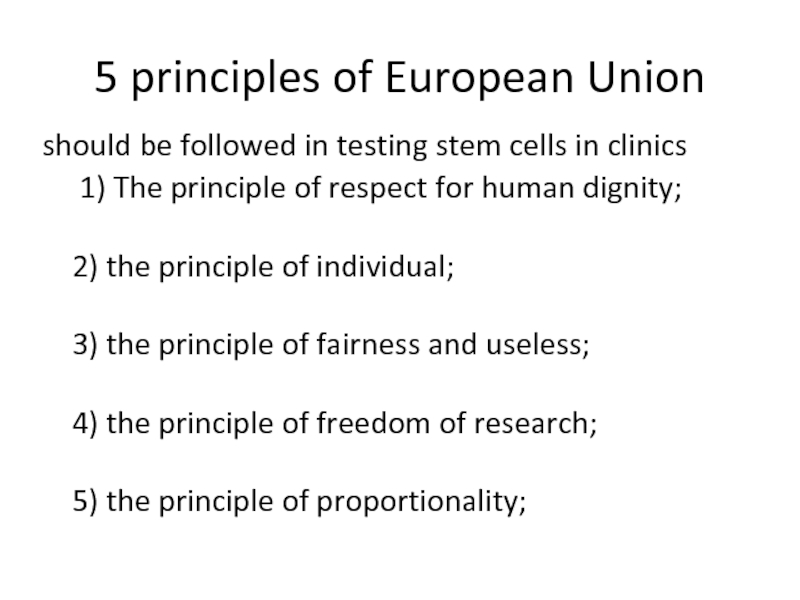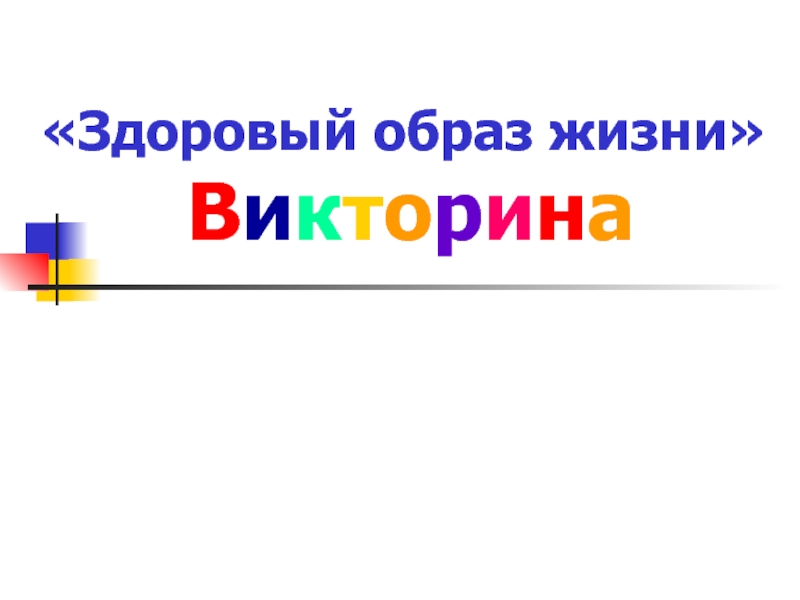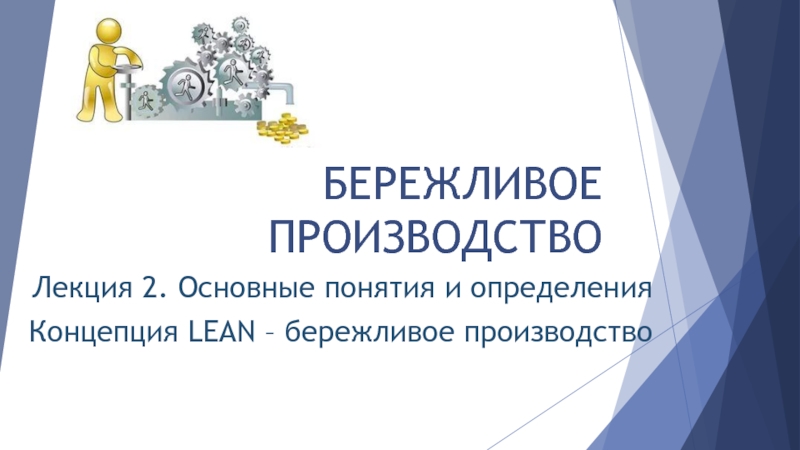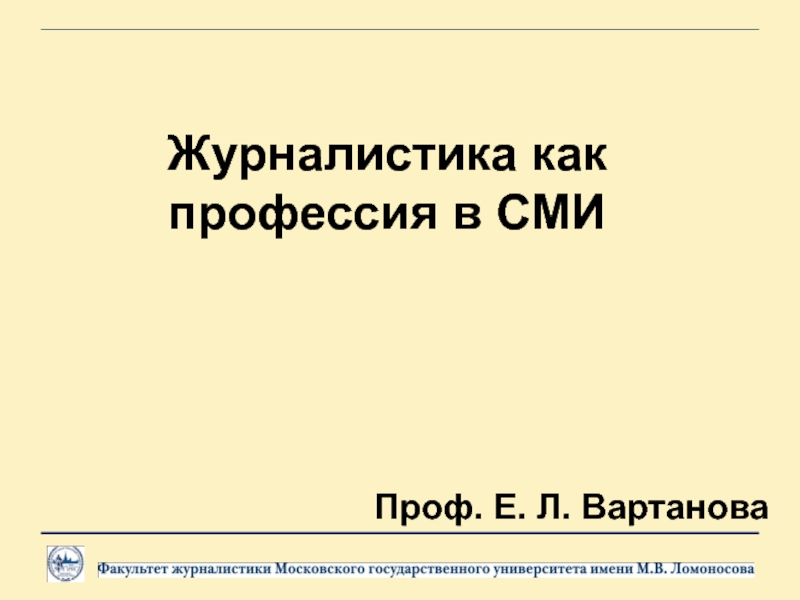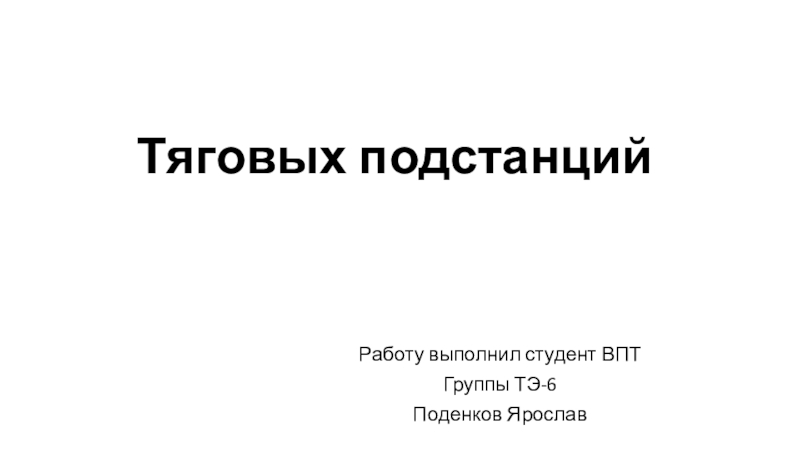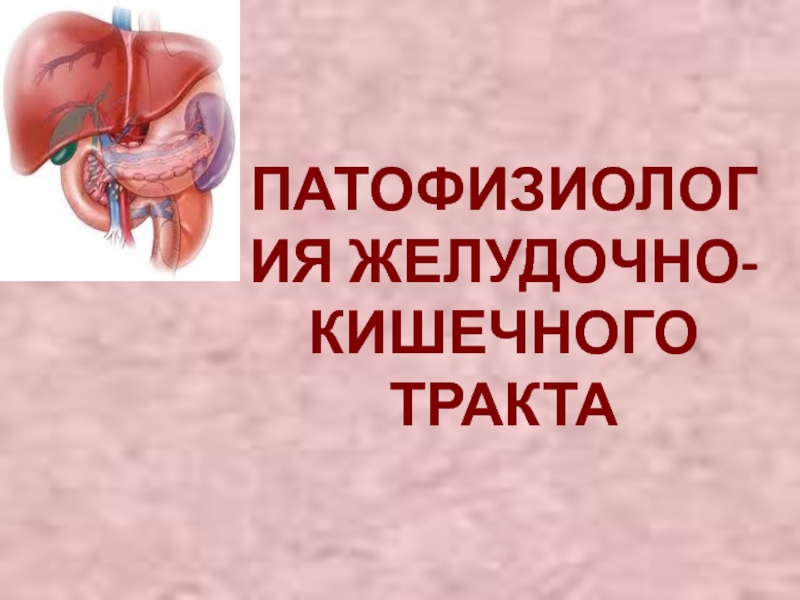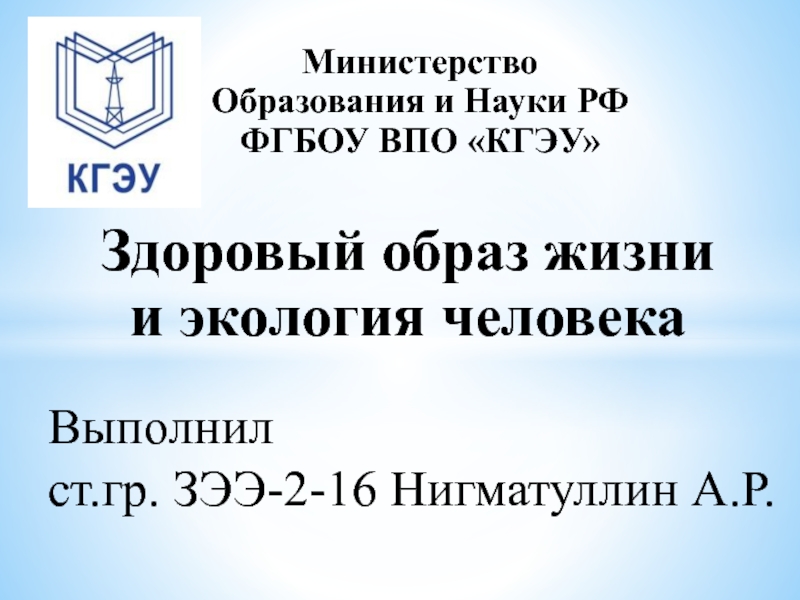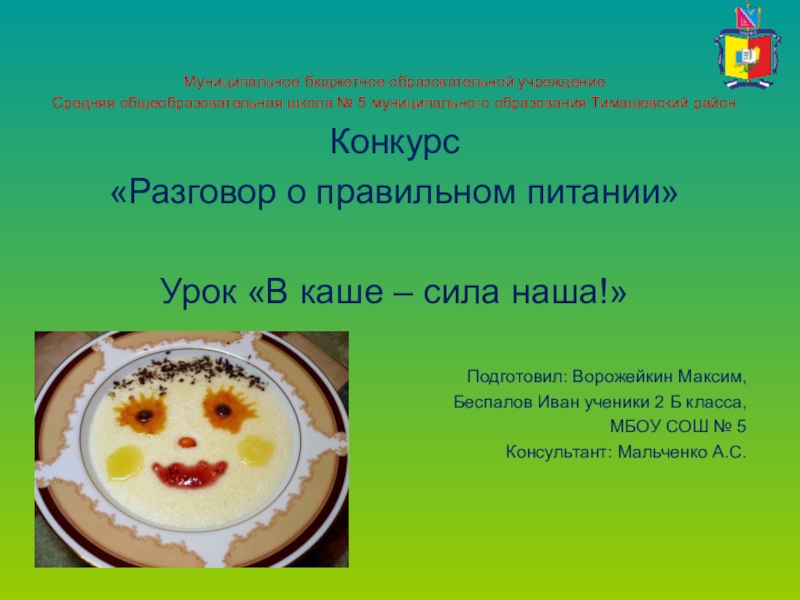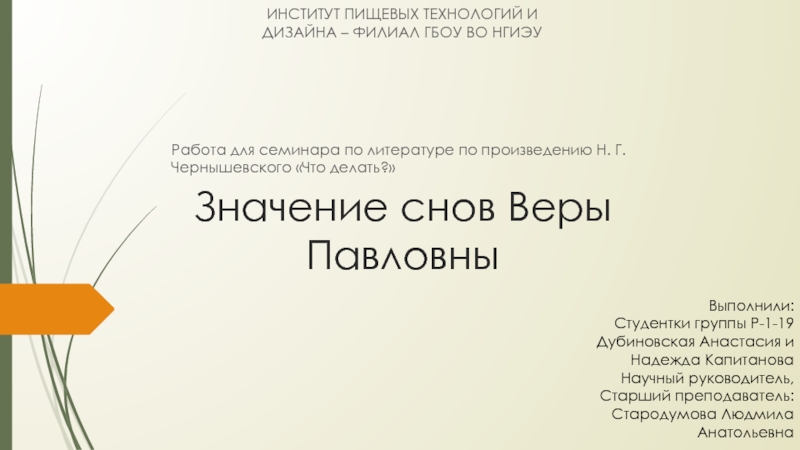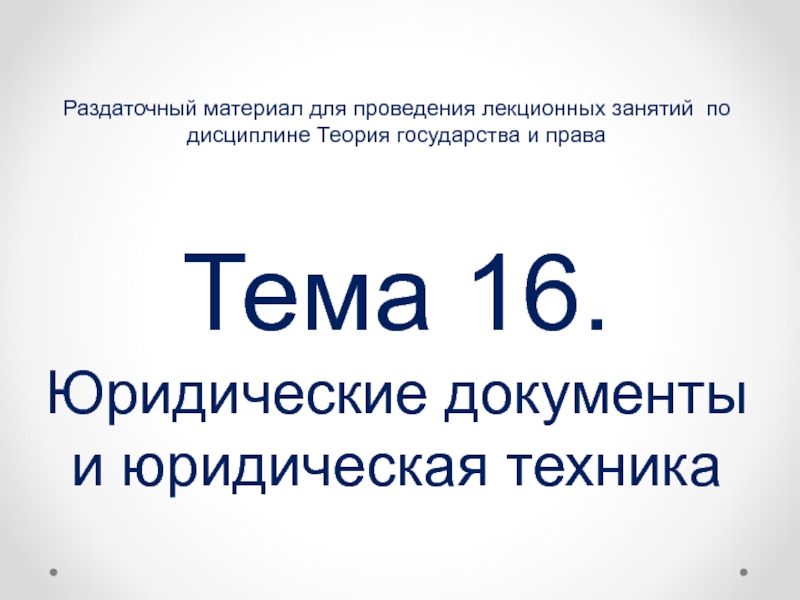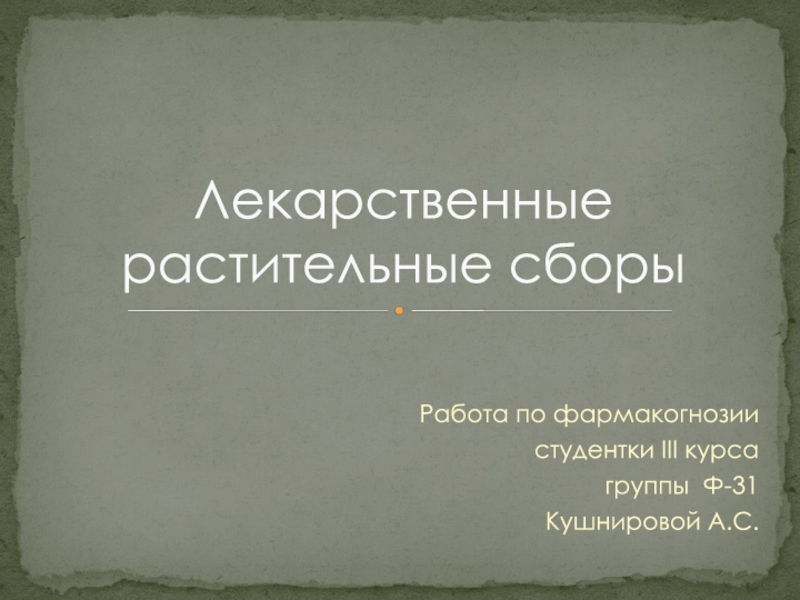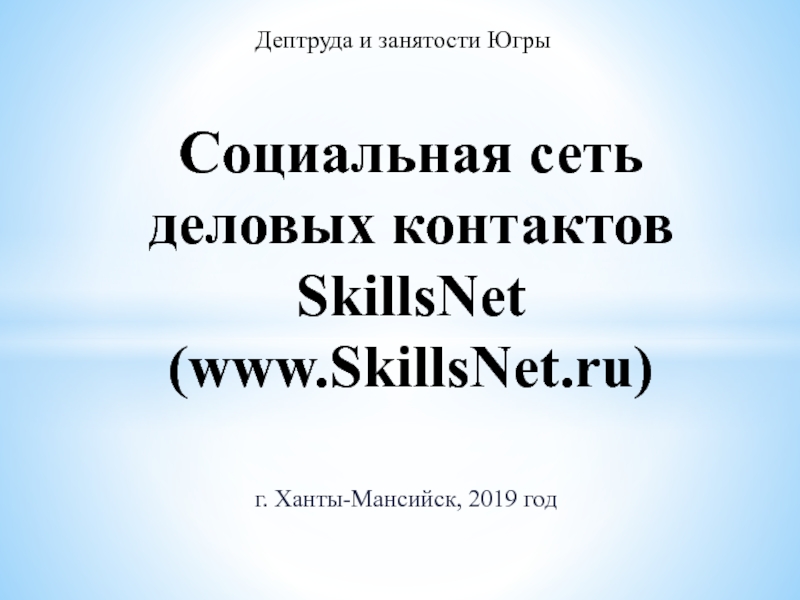Разделы презентаций
- Разное
- Английский язык
- Астрономия
- Алгебра
- Биология
- География
- Геометрия
- Детские презентации
- Информатика
- История
- Литература
- Математика
- Медицина
- Менеджмент
- Музыка
- МХК
- Немецкий язык
- ОБЖ
- Обществознание
- Окружающий мир
- Педагогика
- Русский язык
- Технология
- Физика
- Философия
- Химия
- Шаблоны, картинки для презентаций
- Экология
- Экономика
- Юриспруденция
The ethical issues related to stem cells
Содержание
- 1. The ethical issues related to stem cells
- 2. Obtaining stem cellsDestruct the fertilized egg or
- 3. Laws“The American Convention on Human Rights”(1969)
- 4. MedicineDegenerative diseases - Millions suffer and
- 5. Experiments 1997, Wilmot: - cloned the
- 6. The international law To use “Extra” blastocysts
- 7. To use “extra” blastocycsts for research purposes
- 8. 5 principles of European Union should be
- 9. Скачать презентанцию
Obtaining stem cellsDestruct the fertilized egg or embryo at the early stage of developmentCriticizedEmbryo considers as a human being"The Universal Declaration of Human Rights" (1948)"International Convention for Civil and Political Rights"
Слайды и текст этой презентации
Слайд 2Obtaining stem cells
Destruct the fertilized egg or embryo at the
early stage of development
Criticized
Embryo considers as a human being
"The Universal
Declaration of Human Rights" (1948)"International Convention for Civil and Political Rights" (1966)
Слайд 3Laws
“The American Convention on Human Rights”(1969)
-
“Everyone has the right for respect for his life”
European laws
has prohibited since 1997:- The obtaining stem cells for research purposes
Слайд 4Medicine
Degenerative diseases
- Millions suffer and die
Jean Bernard’s (1930)
two revolutions in medicine:
- Therapy
- Biological
Genetic
code or genomic medicineСлайд 5Experiments
1997, Wilmot:
- cloned the sheep Dolly
1998, Thompson
proved:
- Stem cells from blastocysts
Possibility to threat degenerative
diseasesAt least to minimize the suffer
Слайд 6The international law
To use “Extra” blastocysts for research purposes:
- agreement of spouses or only mother
- agreement of national research protocol or institutional review board- exclude the sale or purchase of the embryo
- preserve the anonymity of the donor
- Data on the genetic should not know either the donor or recipient
Слайд 7To use “extra” blastocycsts for research purposes
It allowed in
6 countries:
-U.S. (2001), UK (2001), Finland (1993), Greece
(2002), Holland (2002) and Sweden (1991)It banned in 5 countries:
- Austria (1992), Denmark (1992), France (1994), Ireland (1983), Spain (1988)
It did not legislate: in Italy, Portugal, and in Russia
Germany allows to import of embryonic stem cells
Слайд 85 principles of European Union
should be followed in testing
stem cells in clinics
1) The principle of
respect for human dignity;2) the principle of individual;
3) the principle of fairness and useless;
4) the principle of freedom of research;
5) the principle of proportionality;
